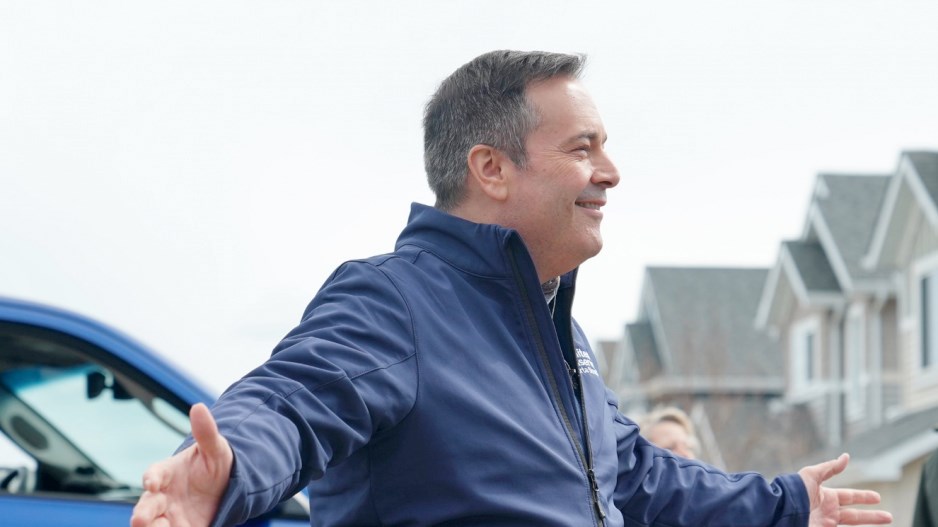After four years of New Democratic Party (NDP) leadership, Albertans voted conservative politicians and politics back to power on Tuesday (April 16).
Led by former federal conservative member of parliament Jason Kenney, Alberta’s United Conservative Party (UCP) appears to have secured more than 60 provincial seats, according to unofficial results from Elections Alberta.
The UCP victory means that provinces east of the Rockies through to Quebec are all now represented by conservative majority governments.
According to former Liberal MP Dan McTeague, the blue wave of conservatism that has swept across Canada is a repudiation of and “counterweight” to Justin Trudeau’s Liberal government in Ottawa.
“They’re moving as a block, and they’re really the bulwark of anger against the federal government. It’s not just coincidental. There are no Liberal governments left, except for the Maritimes, and many of them are just hanging by a thread,” said McTeague.
Kenney has spoken of his alignment with provincial representatives in Saskatchewan and Ontario. He has committed to build an interprovincial coalition that supports Canada’s energy industry and prioritizes industry issues in federal-provincial relations.
He even campaigned on pushing Trudeau’s party out of office: less a promise than a sentiment that drew cheers from voters at rallies.
While open to collaboration on energy, his party’s election raises questions about Alberta’s willingness to collaborate on other pan-Canadian issues, like climate change.
The UCP platform promises to repeal what it calls an Alberta NDP “carbon tax cash grab” and stop it from rising to $50 per tonne from $30 per tonne. That increase, committed to by outgoing NDP premier Rachel Notley, is in line with the federal government’s Pan-Canadian Framework on Clean Growth and Climate Change, which asks provinces with carbon pricing models to increase their carbon taxes or levies to $50 per tonne by 2022.
Alberta’s incoming government has also committed to subjecting future carbon taxes to referendum votes and to suing the federal government if it tries to impose a carbon tax on the province.
“Alberta stopping action on climate change isn’t going to solve Alberta’s economic issues,” said Merran Smith, executive director of Clean Energy Canada, adding that if Kenney rolls back the carbon tax or plans to phase out coal, there exists a federal backstop that will come into play.
“Practically, the federal government’s going to have to use their own tools to ensure that those policies get applied in Alberta. Obviously it’s going to create an increasing challenge for Canada to reach its carbon reduction goals with Alberta joining Ontario in rolling back their commitments.”
The UCP isn’t without an emissions-reduction strategy. Existing facilities with carbon dioxide emissions above 100,000 will have to reduce their emission intensity by 10% relative to their average performance between 2016 and 2018. Compliance can include paying $20 a tonne into a Technology Innovation and Emissions Reduction fund.
But the election wasn’t about fighting climate change and reducing emissions.
In the end, Kenney campaigned successfully by prioritizing jobs, the economy and pipelines, and he used repealing Alberta’s carbon tax to bolster his promises. His party claims the repeal will create 6,000 jobs by 2024 and save Albertans $1.4 billion a year – what it calls the largest tax cut in Alberta’s history.
There is no doubt that this election was about the economy, says Martha Hall Findlay, a former Liberal MP and current president and CEO of Calgary-based policy think tank Canada West Foundation.
However, she says there are broader economic implications to swings in public policy and a lack of collaboration nationally.
“We’ve had enough flip flopping in Canada on issues,” said Findlay Hall. “Investors don’t mind tough rules. Investors just really can’t stand uncertainty.”
Her hope is that some of what was championed in the lead-up to the election was campaign rhetoric; that UCP calls to kill Bill C-69 will give way to finding opportunities to improve the legislation.
“Just killing the bill, and more delay and uncertainty, is also not good for investment,” said Findlay Hall. “If Canadians are all fighting with each other constantly, investors are just looking at us saying, ‘We don’t need that. We’re going to go somewhere else.’”
She also hopes the new Alberta government will be open to collaboration on a wide range of economic areas, be it in reducing barriers to interprovincial trade, developing a Western Canadian electricity grid or taking advantage of the federal government’s interest in agriculture food and technology innovation.
The UCP has promised to immediately file a constitutional challenge to strike Bill C-69 down. It has also threatened to hold a referendum on equalization payments in 2021 if substantial construction progress on the Trans Mountain Pipeline expansion project has not been made.
If B.C. obstructs pipeline construction, the party has said it will make use of legislation passed under Notley that gives Alberta the ability to restrict oil and gas exports to B.C.
With files from Nelson Bennett.



